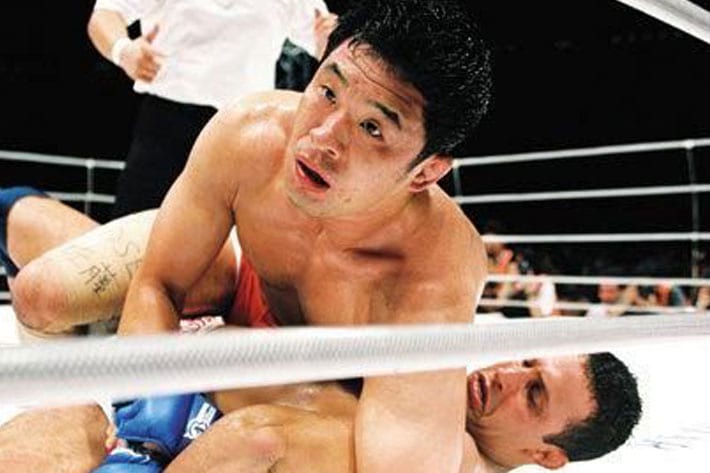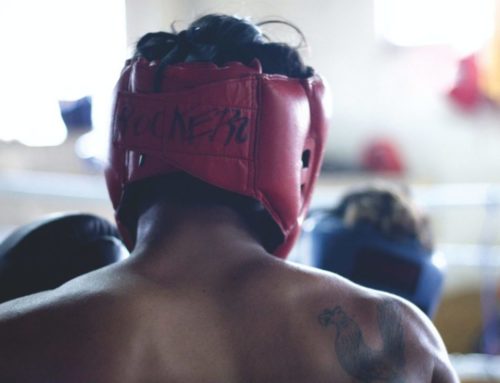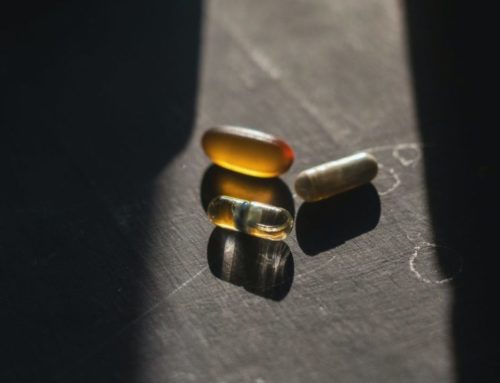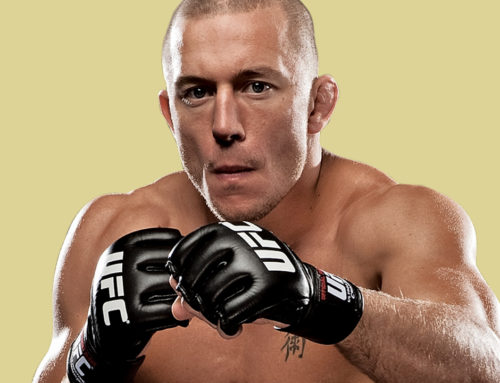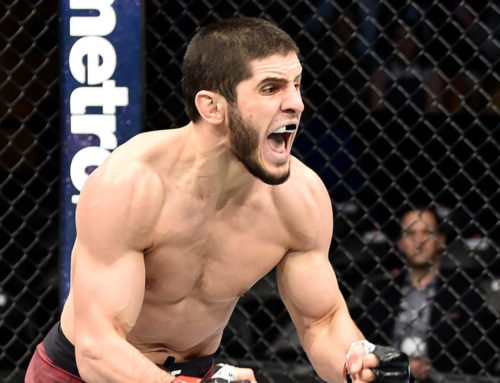He was the most popular fighter in Japan, revered in Brazil and loved all around the world. Kazushi Sakuraba is a true icon of MMA and his inclusion in the UFC Hall of Fame is a fitting tribute to his career, despite the fact he only had two fights within the eight walls of the Octagon – and on the same night, too.
What makes ‘The IQ Wrestler’ an essential addition to the UFC’s pantheon of MMA heroes is not an impressive record – he retired with a 26-17-1 (2NC) slate – and it’s not because of his glittering trophy cabinet – his UFC Japan tournament win was his only major title. It’s because of his fighting spirit. He was Mr Pride, a man who had a willingness to take on anyone and the desire to put on a show for the fans first, even if that meant his chances of getting hurt, often seriously, were that much greater.
FO looks back at some of the qualities and quirks that made Sakuraba one of the most remarkable men to ever compete in mixed martial arts.
Marathon match
The defining match of Sakuraba’s career was undoubtedly his hour-and-a-half war with Royce Gracie in the 2000 Pride openweight grand prix. The duration was unique, and it made for an unbelievable contest, which ‘The Gracie Hunter’ saw as an opportunity to deliver for his supporters.
“The MMA fights that fans tell me had an effect on their lives are from when I took on the Gracie family, especially the fight with Royce Gracie. From a modern MMA fan’s point of view, it was an unbelievably crazy match. Fifteen minutes per round, with no round limit. The only way to win was with a tap out. There was no allowance for referees to stop the fight, an unprecedented rule, and so the match was labeled a ‘high-noon duel’.
We fought for 90 minutes, Royce and I, until finally a towel flew into the ring from the Gracie corner. It was over and I was the victor. They put their lives on the line to fight for the honor of their family. On the other hand, I fought for the love of my fans. I fought tooth and nail to give them a show they can enjoy, the show they deserve.”
Tournaments
After the Royce Gracie fight, Sakuraba’s night wasn’t over. There were the semi-finals and final of the competition to deal with. After the exertions of his endurance match, it’s no surprise he couldn’t overcome Igor Vovchanchyn in the next round, and perhaps explains his attitude to the tournament system.
“I hate tournaments,” he said. “I can do them, but I don’t want to. Why? Because they’re a pain in the ass. Even if you win, your next fight is right there waiting for you. You have to fight two or three times just for the thing to end. The more you win in a tournament, the tougher it gets, it really is an unreasonable format.”
The main event
When Pride teamed up with K-1 for the biggest MMA show ever – Shockwave Dynamite! at the National Stadium in Tokyo – the main-event slot had to be given to Sakuraba against heavyweight kickboxer, Mirko Cro Cop, who won by smashing his Japanese opponent’s orbital bone. Before he was defeated, Saku says he had the chance to win with an armbar, but he explains his unique thought process that stopped him from snatching an unlikely win.
“Just before someone approaches death, it is said that their life until then comes back to them like a soumatou [Japanese revolving lantern] inside their head,” he explained. “It was really like that feeling. In the span of a few seconds, all kinds of thoughts were running about in my head. ‘I’m sorry for pooping my pants.’ ‘I’m sorry for stealing a bicycle.’ ‘I’m sorry for stabbing my student in the ass with a saber.’ ‘Mother, father, please forgive me for dying before you and leaving you with such unhappiness.’
“The problem was, while I was reflecting on my childhood crimes, the chance disappeared. In the end, I didn’t go for the armbar. After all, it takes too much time to look back on my life from childhood until now. Maybe if it had been limited to from when I graduated high school until now, it would’ve turned into something.”
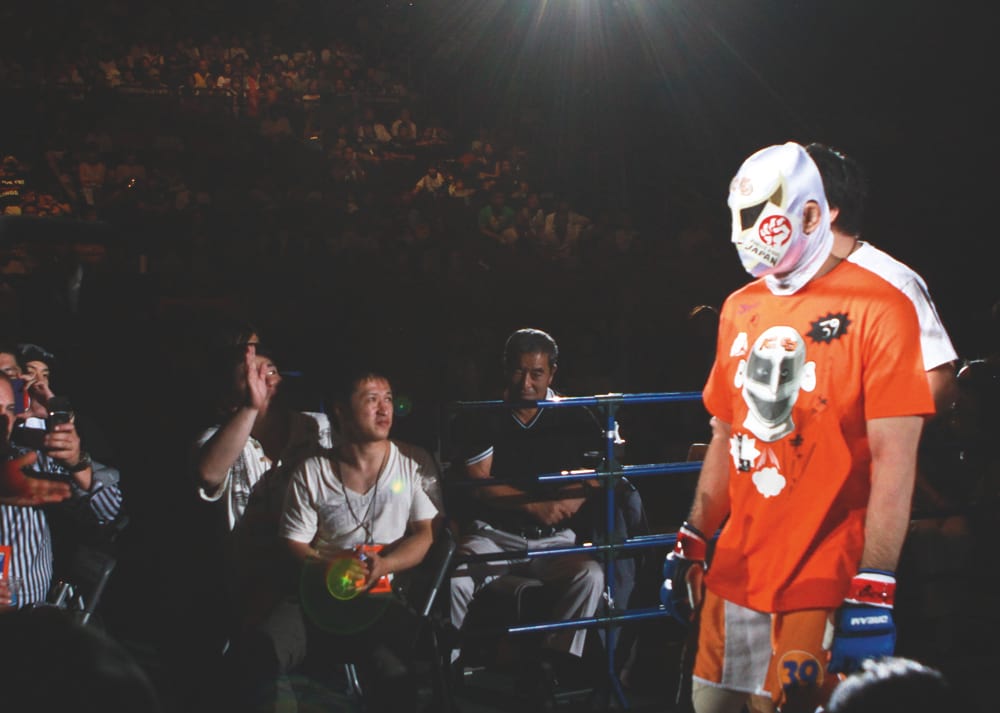
Sense of honor
At Pride 23, pro wrestling hero Nobuihiko Takada was set for his retirement MMA match in the main event. Sakuraba was set for a slot on the card against Gilles Arsene, but considered pulling out because he ruptured knee ligaments five days before fight night. Takada, though, wanted him to take his headline slot, as he was to be the organization’s marquee man for years to come.
“Takada had looked after me ever since I started pro-wrestling, and I thought of him as my major senpai [teacher or master]; as well, he was the president of the company I worked for. It was his retirement event, and it would be unforgivable to leave a hole in the main event. He even told me at one point that it was OK if I dropped out, but there was no way I could do that. I sealed up my knee stiff with supporters and tape and ended up in the ring.”
Big boss
Sakuraba’s greatest rival was Wanderlei Silva. The pair fought three times, with the Brazilian coming out on top, by knockout, each time. It’s hardly surprising considering the size and strength difference. That much time in the firing line of one of the most violent competitors ever can give someone a unique perspective of ‘The Axe Murderer’.
“It is like when you’re playing Resident Evil, and you go up against a giant monster that has a bazooka and you just have a single pistol. I exchange fire with the bazooka blasts, firing the pistol ‘pow pow’, aiming for his weak points. If I get hit once, it’s game over. This nervous tension is irresistibly enjoyable…
“Silva comes firing, BOOM, with his bazooka. His fists are coming at my face. And right then, the place I was in completely changed. Snapping out of it, what I saw in front of me was the ceiling of the locker room.”
Strike or submit?
Don’t let the ‘IQ wrestler’ moniker fool you, Sakuraba was a wild, creative fighter in every realm, willing to engage in chaotic scrambles or throw some Mongolian chops – even if he sometimes got hurt as a result. But he explained that his greatest thrill came when he forced an opponent to tap.
“To win by submission is really a great feeling,” he said. “It’s the ultimate ecstasy. It wouldn’t be going too far to say that this moment is why I keep training. But with a submission win, they lose knowing that they lost. Only with their declaration of intention to give up does the fight end. When the opponent says he lost, I immediately let go. They tapped of their own accord, so there is no excuse they can make. I won, the fighter that gave up lost. That feeling of conquest is irresistibly good.”
The best policy
You won’t find many more honest fighters in MMA. In the hurt business, competitors often have to put their guard up and act tough. Excuses aren’t acceptable. So when Sakuraba – who was carrying an injury – was given a choice of experienced 205lb contender Antônio Rogério Nogueira, or a debuting Mexican pro wrestler named El Solar to fight on New Year’s Eve 2003, he had a simple decision to make. But that didn’t mean he wouldn’t rather have taken the easy way out.
“Rogério was the only choice,” he said. “If a rumor spread that I only fought weak opponents, people would be laughing at me until the era of my grandchildren. I have to avoid that. We’re both in the middleweight class, but our body types are so different. Well, this is the twin brother of Rodrigo who’s a heavyweight, right? So then, isn’t Rogerio a heavyweight, too? I really should’ve gone with El Solar.”
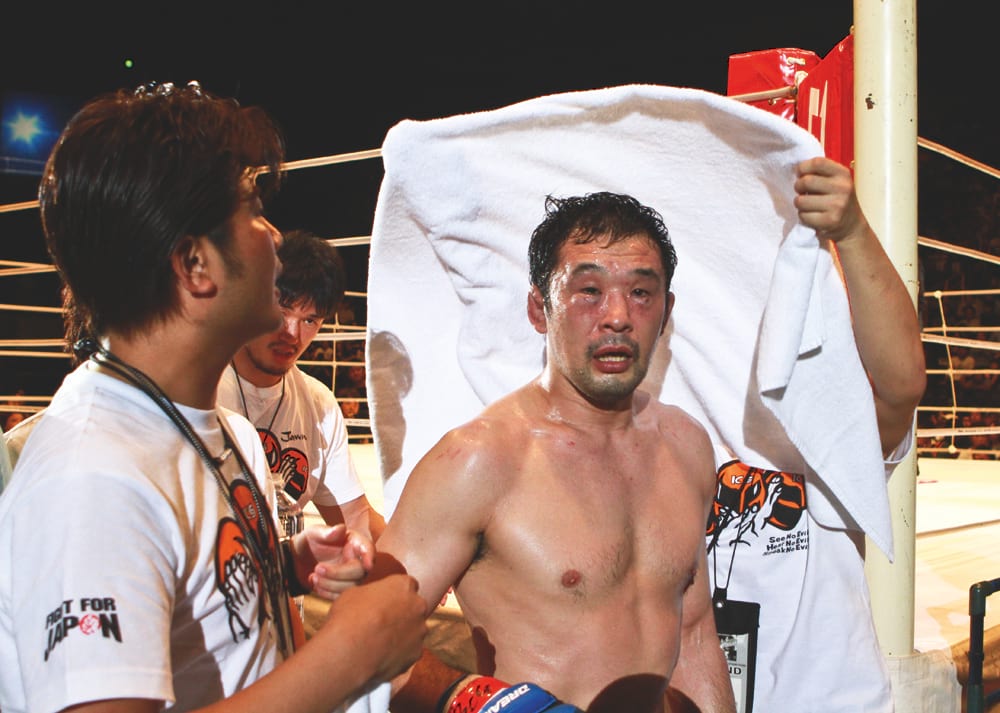
Fans first
The star of Japanese combat sports is finally retired now, an ill-advised and ill-fated comeback in December 2015 after four years away showed his body is just not up to the task of competing after so many years of punishment. Now he’s passing on his wisdom to the next generation.
“I hand down my techniques to the younger fighters I train with and those techniques will likely continue to evolve,” he explained in his Hall of Fame acceptance speech. “But what I really want to pass on, more than technique, is heart. There’s nothing I’m prouder of as a professional. ‘A match is a form of communication shared with the audience.’ This is the message I want to pass on to the fighters that build the future.”
The ‘real’ Mr Pride
Sakuraba had a few names, but none of them actually made him synonymous with the madcap Japanese organization like Akira Shoji, who was actually dubbed ‘Mr Pride’.
He wasn’t the most successful mixed martial artist – his Pride record was 9-12-2 – but he had some slick grappling, he was an entertainer on the mic and he would fight anyone, no matter the disparity in size or ability.
Eat like a champ
In a world of nutritionists, macros and weight management, Sakuraba was an outlier. He enjoyed eating, drinking and smoking cigarettes far too much to live like a monk and stick to a strict, healthy, balanced diet. Especially when he trained in Brazil where the beer was flowing and the barbecue was plentiful.
“If I was awake, there was never a moment where my stomach was empty,” he said. “My body had started growing. Or I should say, I got fat. My face was chubby. Fat was being stored around my stomach. Lying on the ground, it was hard to get up. My stomach would get in the way, and I couldn’t hit the armbar from the bottom anymore.”
*** This feature first appeared in the October 2017 issue of Fighters Only ***

